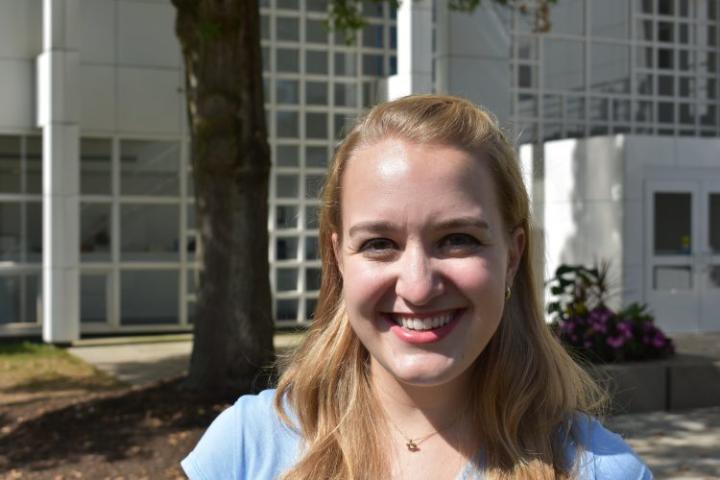Peacemaker Profile: Allyson Zacharoff of the U.S.
October 17, 2017

Our 2017-18 class of International Peacemaking Program fellows includes nine students, four from the U.S. and five from other countries. We asked each one of them the same set of questions.
Q. Briefly tell us about your educational background.
A. During my undergraduate years at the College of William and Mary in Virginia, I focused my research on antisemitism in modern and contemporary Europe. The enduring presence of this ignorance spurred me to pursue ways to combat such baseless hatred, and I found myself focusing on interfaith relations. After college, I received a Russell Berrie Fellowship in Interreligious Studies to study at the Pontifical University of St. Thomas Aquinas in Rome, the only Jewish individual to receive this scholarship. Then, after two years working in interfaith in New York City, I moved to Jerusalem for a year to study at Pardes Institute of Jewish Studies, before returning to the U.S. to be part of the IPP program.
Q. How did you learn about Hartford Seminary’s International Peacemaking Program?
A. Having moved in the interfaith world for a number of years, I had heard about Hartford as a center of interfaith learning. I met former Hartford professor Dr. Yehezkel Landau when he gave a lecture on interfaith work at Pardes, where I studied this past year in Jerusalem. He encouraged me to apply for the IPP program.
Q. Why are you interested in learning about peacemaking?
A. I have spent the past few years learning about other faiths, and interacting with people of those other faiths. I am looking to continue that learning, and pair it with practical knowledge of how to apply my skills to help bring lay people together in their communities. Aside from the major, top-down level of peacemaking, this general effort toward greater understanding is essential if we want to change societal nature towards the "other" on a broader level.
Q. How do you hope to use your skills after a year of training as a peacemaker?
A. During this year in IPP, I hope to define a concrete project that can be replicated throughout the U.S. and Western Europe so that communities can come together on a grassroots level. I would hope to be able to implement that project going forward.
Q. Tell us a little about your home country and the interreligious conflict it faces.
A. I am from the U.S., where a lot of ignorance and fear about other religious groups still permeates society. However, I have also lived abroad a number of times -- in Western Europe, most recently in the Middle East. These communities may face more immediately violent interreligious conflicts more often in recent years, but still many of the issues faced in the West stem from this same thing: ignorance and fear of the other. Education, forming relationships, and other community-building efforts are what can ultimately have long-term effects on improving relations in all these societies.
Q. Give us a quick description of your home life (family, where you live, etc.)
A. I was raised as the Jewish child of an interfaith marriage on Long Island, N.Y., where I learned the value of religious diversity at an early age. Since then, I have moved often, most recently spending a year in Jerusalem, but also having lived in Italy, the United Kingdom, Virginia, New York City, and now Connecticut.
Q. Hartford Seminary is using the phrase “We Were Built for This Time” to address the deep divisions in our country and across the world. What does that mean to you?
A. To me, this is an effort to bring religion -- a seemingly "outdated" or "ancient" topic -- into the current climate by focusing on how relevant it remains today. This phrase thus means to me that Hartford acknowledges the enduring relevance of religious study and interfaith dialogue across time periods -- but especially today.
Join our mailing list
Keep up with all the latest happenings at Hartford International.

